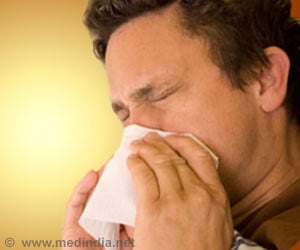Direct contact with children is a risk factor for adult pneumococcal pneumonia during school holidays compared to term-time.

TOP INSIGHT
Vaccinating adults who are admitted to hospitals and at a high risk of developing pneumococcal pneumonia, may prove useful in circumstances where the adult-child contact cannot be avoided.
Between September 2008 and 2013, adults admitted with CAP to 2 hospitals that covered the catchment area of Greater Nottingham, were studied prospectively. Of 2,221 individuals, 643 (29.0%) were diagnosed with pneumococcal CAP. Of those with pneumococcal CAP, 203 (31.5%) were admitted during school holiday periods. Admission during school holidays was independently associated with a diagnosis of pneumococcal CAP, after adjustment for variables including child contact. There was a 35% increase in the age-adjusted incidence rate of adult pneumococcal CAP during school holidays compared to term time.
Dr Daniel says "Our results demonstrate a higher incidence of pneumococcal CAP in adults hospitalized during school holiday periods compared to term-time. Duration and intensity of child contact may play an important role in pneumococcal disease transmission to adults, however, as this is an observational analysis causality cannot be assumed."
. She adds "Social interactions between adults and children seem to be important in relation to rates of pneumococcal pneumonia. Adults at higher risk of developing severe pneumococcal pneumonia may benefit from being vaccinated in accordance with current national guidelines. "
 MEDINDIA
MEDINDIA




 Email
Email










